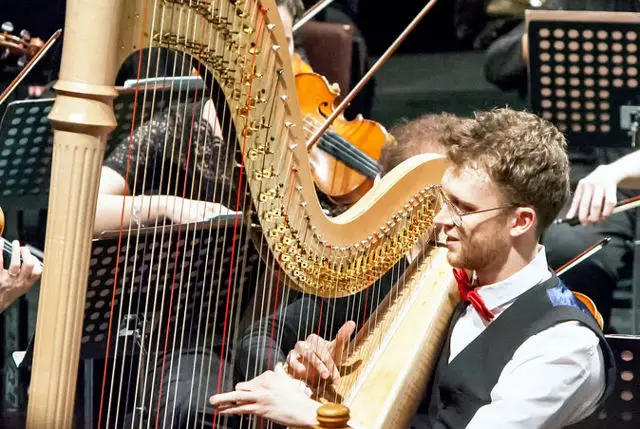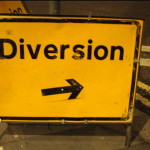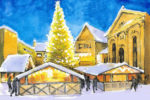Jonathan Dodd shares his review of the latest Isle of Wight Symphony Orchestra (IWSO) concert. Images with kind permission of Allan Marsh. Ed
On Saturday 18th December, the Isle of Wight Symphony Orchestra kicked off their 2017-2018 season with an evening of Russian music. It seems like months since the fantastic finale of last season, and Medina Theatre was filled to the rafters with eager music-lovers.
Starting the season with a menu of Russian music might seem counter-intuitive, because many people think that Russian music is all dark and heavy, but the clever people of the IWSO managed to find a varied programme of music that was generally light and very tuneful, and filled with emotion, as well as some large and loud stuff, with a dash of rather wonderful darkness. It was, as usual, a great evening.
Masquerade
The concert started with a piece by Khachaturian, called the Masquerade Suite. It started life in 1941, written for a play called Masquerade, but the Second World War intervened, and it was adapted into a suite in 1944, based on folk tunes from his childhood in Georgia, close to the Turkish border.
Click on image to see larger version
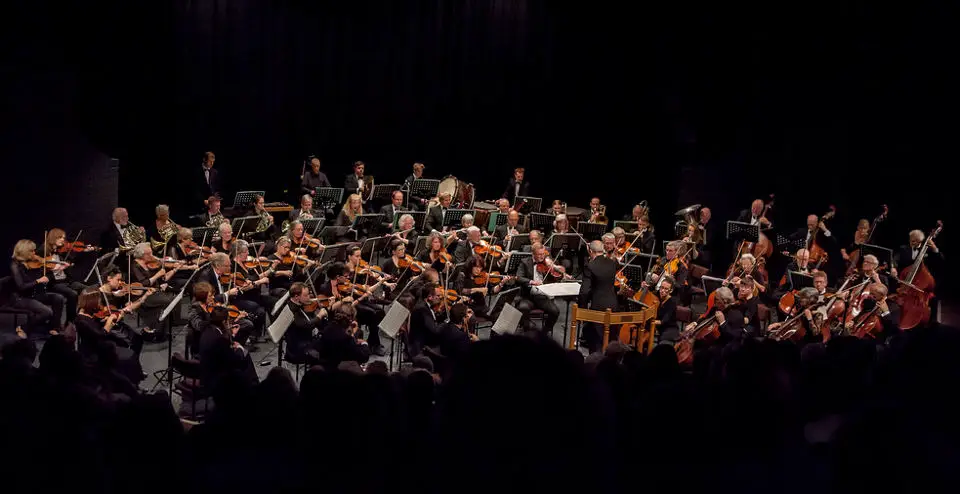
The first piece is one of those tunes that everyone has heard, including myself, and I was delighted to recognise it. It’s a lovely tune, with a lot of energy, making full use of the strings. All five parts of the suite were played with vigour and precision, and made a splendid opening to the season and this concert.
Kamarinskaya
The second piece was by Glinka, about whom I knew nothing. One of the joys of going to these concerts (and writing these reviews), is that I find out about the composers. Glinka was born in 1804, in Smolensk, which is in that vast plain somewhere near the Russian border with Belarus, which in turn is the other side of Poland. He travelled widely, and he influenced many composers who came after him.
Click on image to see larger version
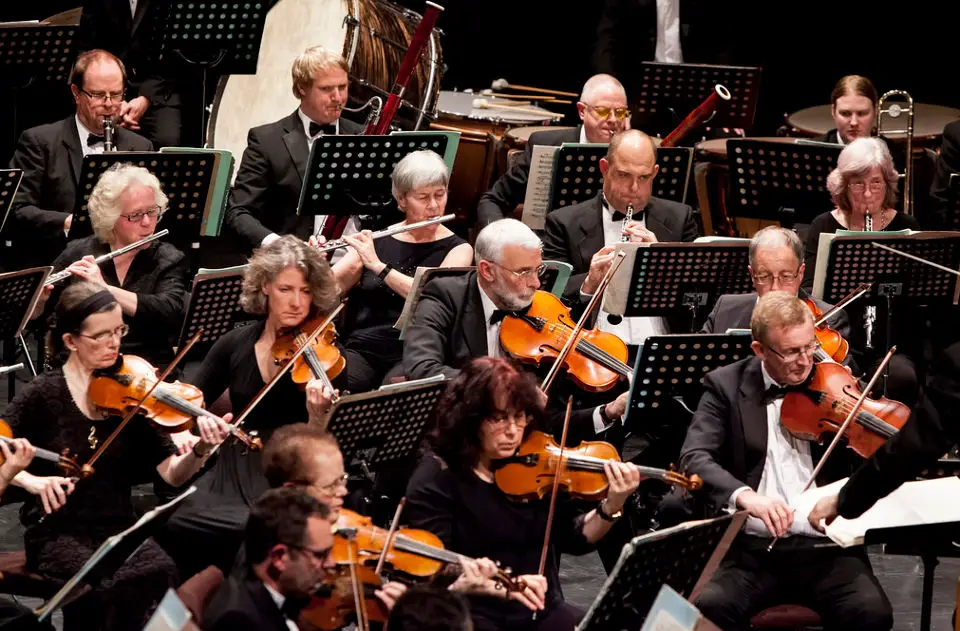
The Kamarinskaya is a dance based on a short theme, repeated and varied by the violins, and then many other instruments of the orchestra, and was very pleasing, giving a jaunty and rolling feel that let me imagine dancers weaving in and out in a complex and very satisfying pattern.
Harp Magic
The last piece before the interval was a Harp Concerto by Glière, who was born in Kiev, in modern-day Ukraine. He composed it in 1938. I have never heard a Harp Concerto before, and it was the first time one has been performed on the Island, so I was looking forward to hearing it very much.
The harp is an imposing instrument, often hiding in the background and used as an accompanying instrument in other works, but when it was wheeled out to the front it seemed huge. Being a harp maestro must be a logistical nightmare, and require a lot of patience and tuning as it travels the world.
Click on image to see larger version
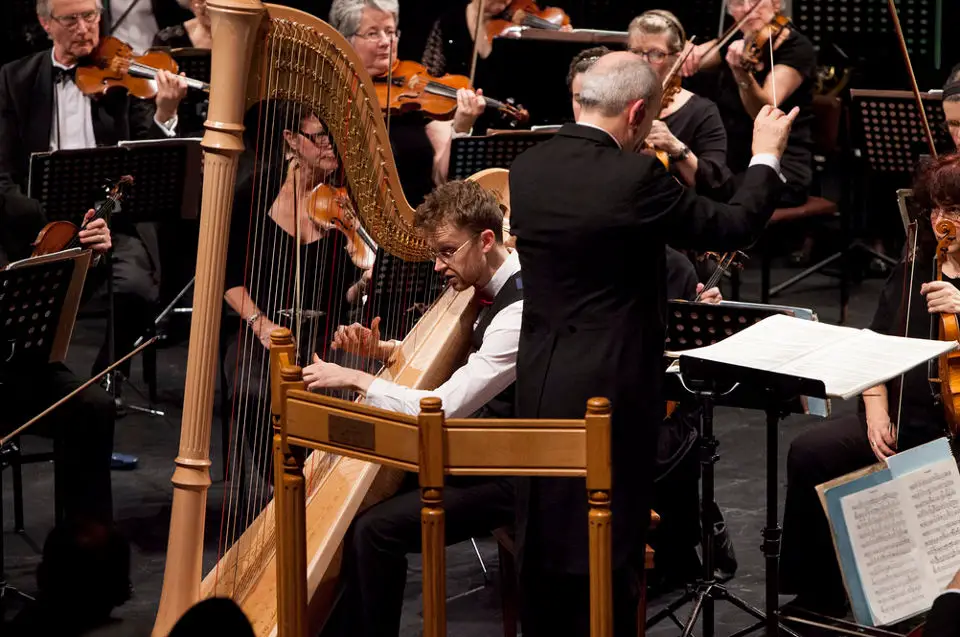
Oliver Wass is a rising star in the harp world, and has won much acclaim and many prizes. He made a striking impression, with long expressive wrists and fingers, and a look of pure joy, as he dominated the orchestra throughout the concerto. The concerto was written with the help of a leading harpist, so it contains much difficulty, but is also very harp-friendly, and the orchestra played along with and in conversation with the multiple notes and runs of the harp itself.
There was an abundance of tunes and melodies, and the feel was romantic and smooth, and it was very pleasant to listen to as well as being a marvellous showcase for the harp itself as an instrument in its own right. Mr Wass played beautifully and commandingly, and it was spell-binding.
He added an unexpected encore afterwards, a Spanish Dance by Manuel de Falla, performed solo with panache. The entire orchestra and audience listened entranced, and it was wonderful to hear a master play such complex dance music with such skill and energy. There were several members of Harp on Wight in the audience, who were ecstatic, as was I. Bravo! I hope Mr Wass comes back to delight us again.
Pathétique
After the interval the orchestra got down to playing a large piece of music, Tchaikovsky’s Sixth Symphony. This is one I know, the ‘Pathétique’. I remember many years ago, when I was listening to rock music, which meant everything to me, and I had no interest in Classical music, partly because it was of the past and of my parents’ generation, and because it made no impression on me. I thought it was just people in suits showing how clever they were. I felt no soul in it, so it meant nothing to me. And then someone played me Tchaikovsky’s Sixth Symphony.
Click on image to see larger version
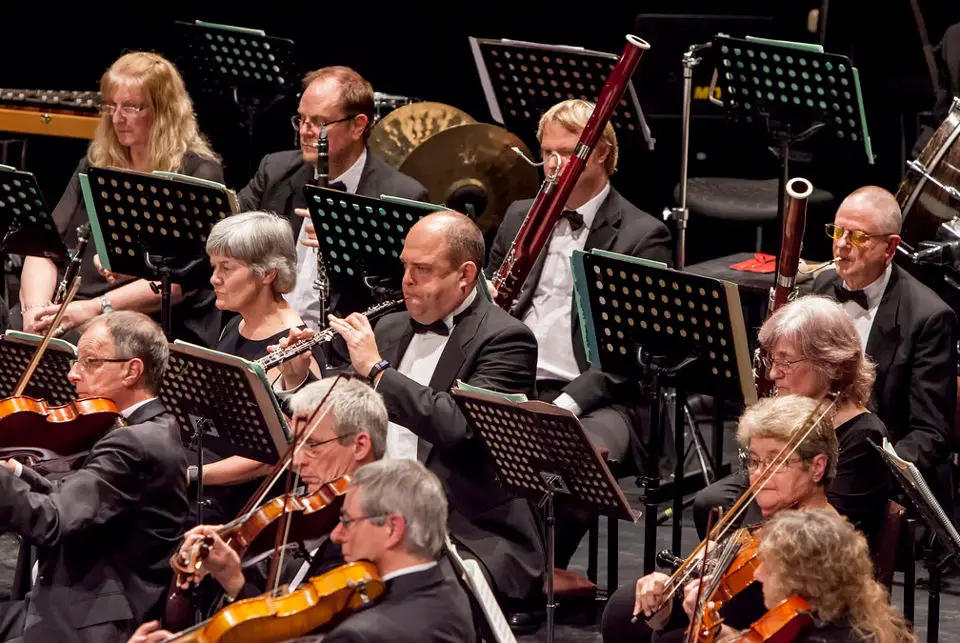
Suddenly, a door opened, because I found I was feeling the music as well as listening to it, as if he had written it for me, and the orchestra was playing it for me. I felt that it was talking to me about the things I cared about and the anger and anguish I felt, in a way that only rock music had been able to before, and that was the moment I realised that there was more to Classical music than I had realised. I jumped through Tchaikovsky to Mozart, then Beethoven, and spread through Bach and Berlioz, and Sibelius, and on and on, but it was this symphony that started me off.
Listening as I did the first time
Over the years I have travelled so far from that moment that I forgot what I owed to it, and I hadn’t listened to it for decades. So I was ready for it when I took my seat and heard the first quiet notes, and within seconds I was back then, listening as I did the first time, except it was live. The IWSO sometimes completely fill me with emotion, and that was one of those moments. I remembered every note and every tune and every pause, and they brought it to life again for me.
Tchaikovsky is a great purveyor of emotion. He writes huge tunes, and sets them in tempestuous ways, ranging from very quiet to full-on turned-up-to-eleven mode, and it’s impossible not to be carried along, like a sailboat in a storm. It’s exhilarating and frightening, and exhausting, and somehow every moment and every emotion is true and real and reminds you of things you have felt before, and lets you relive them fully. The noise and clamour subsides towards the end, and it finishes on such a quiet note, as all the instruments trail away one by one, until there’s silence and stillness. It was a struggle not to sob at that moment, with sadness, and joy, and relief, and gratitude.
Click on image to see larger version
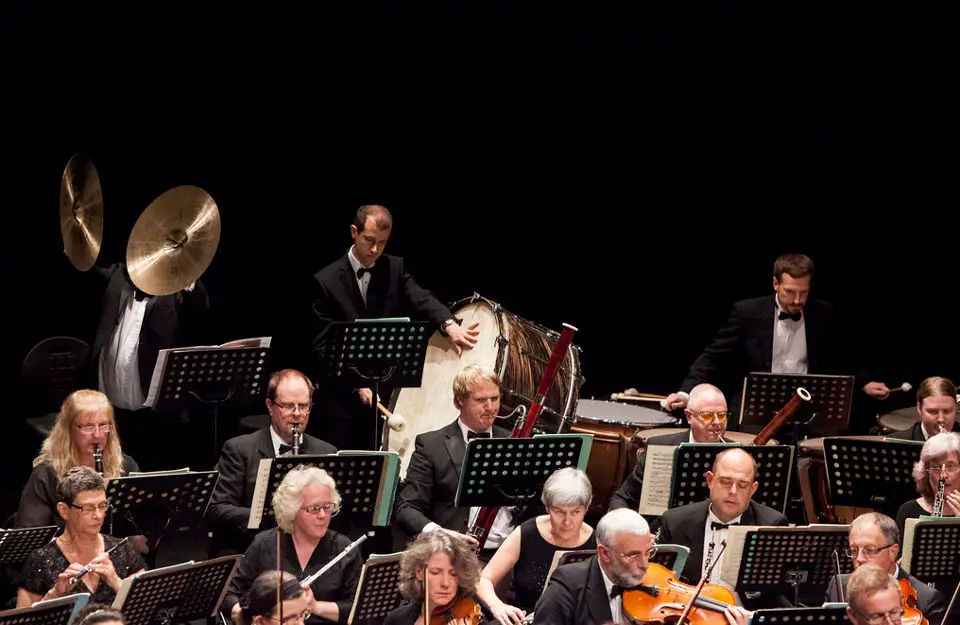
The orchestra played their hearts out. It’s a huge symphony, with a huge range of moods and effects, and every musician there on Saturday gave their all and played magnificently. I was exhausted and happy afterwards. Heaven knows, they must have been far more exhausted than me. Thank you.
Next Concert
Next time, on Saturday 20th January 2018, there’s another Russian symphony. Shostakovich’s First. I’m looking forward to that. And there’s an Epic March, by Ireland, that I don’t know, followed buy Elgar’s wonderful Violin Concerto, which I do know, and I’m excited about listening to live for the first time.
Get you tickets soon, it’s bound to be sold out again. See you there.
Images: © With kind permission of Allan Marsh

